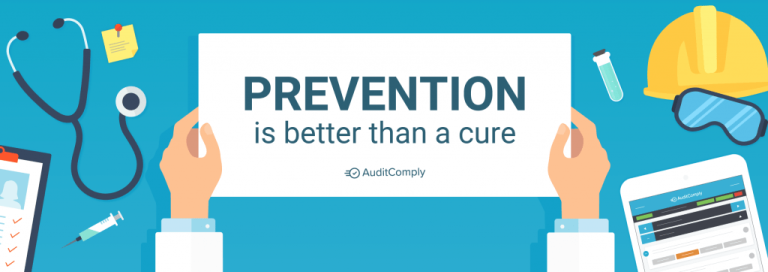The Benefits of Regular Health Check-Ups: A Path to a Healthier Future

In today’s fast-paced world, it’s easy to overlook our health amidst busy schedules and stressful lifestyles. Many individuals only seek medical attention when they experience symptoms, but regular health check-ups can prevent, detect, and treat many conditions before they become serious.
Incorporating health check-ups into your routine can dramatically improve your quality of life by fostering early intervention and maintaining long-term well-being.
This blog outlines the numerous advantages of regular health check-ups and why they are essential for everyone, regardless of age or lifestyle.
- Early Detection of Diseases

One of the most significant benefits of routine health check-ups is detecting diseases early, even before symptoms present themselves. Many life-threatening conditions, such as cancer, cardiovascular disease, or diabetes, may develop silently without any immediate signs. Early detection through screening tests can identify these conditions at their earliest and most treatable stages, thus improving the chances of recovery or better management.
- Cancer: Regular screenings for various cancers (breast, cervical, colon, prostate) can save lives by catching cancer early when treatment is more effective.
- Heart Disease: Routine blood pressure and cholesterol checks can help identify risks for heart disease and stroke, often before symptoms occur.
- Diabetes: Regular blood sugar tests can detect pre-diabetes or diabetes early, allowing lifestyle changes or treatment to prevent complications.
- Preventative Care and Risk Reduction

Health check-ups are not just about diagnosing existing conditions but also about preventing diseases before they start. Preventative care is one of the most effective ways to stay healthy, as it provides insights into your overall health and reveals potential risks.
- Vaccinations: Regular check-ups ensure that you’re up-to-date with immunizations, such as flu shots, HPV vaccines, or travel-related vaccines.
- Lifestyle Advice: Health professionals can offer personalized advice on maintaining a balanced diet, exercising regularly, and managing stress, all of which contribute to reducing the risk of chronic conditions.
- Screening for Risk Factors: Blood pressure, cholesterol levels, and body weight assessments during check-ups help identify risk factors for illnesses like hypertension, heart disease, or metabolic syndrome.
- Promoting a Healthy Lifestyle

One of the key aspects of regular health check-ups is the opportunity to discuss lifestyle habits with healthcare providers. These conversations are crucial for identifying unhealthy patterns and working on achievable goals to improve overall well-being.
- Diet: Nutrition plays a significant role in maintaining health. A healthcare provider can help identify dietary habits that may contribute to weight gain, high blood pressure, or other health issues, offering practical recommendations for improvement.
- Physical Activity: Lack of physical activity is a major contributor to many chronic conditions, including obesity and heart disease. Health check-ups often include assessments of physical fitness, leading to advice on incorporating more activity into daily routines.
- Mental Health: Mental health is often overlooked in general health assessments. Regular check-ups provide an opportunity to discuss emotional well-being, stress, anxiety, and depression, with recommendations for mental health care if necessary.
- Better Management of Chronic Conditions

For those already living with chronic conditions such as hypertension, diabetes, or asthma, regular health check-ups are crucial for managing these illnesses effectively. Routine visits allow for monitoring disease progression, adjusting treatment plans, and reducing the likelihood of complications.
- Medication Management: During check-ups, doctors review medications and may adjust dosages or prescriptions based on current health conditions.
- Monitoring Disease Progression: Regular tests help track the effectiveness of treatments and determine if changes are necessary, ensuring that the condition is under control.
- Prevention of Complications: By monitoring chronic conditions regularly, patients can avoid serious complications that may arise from unmanaged diseases, such as kidney failure in diabetes or heart attacks due to high blood pressure.
- Cost Efficiency in the Long Run

Although many people avoid health check-ups due to the associated costs, it’s important to consider the long-term financial benefits. Early detection of diseases often means less intensive (and less expensive) treatment compared to treating a condition that has progressed to a severe stage.
- Avoiding Emergency Care Costs: Preventive health care reduces the need for expensive emergency interventions, hospitalizations, and surgeries that might be required for advanced diseases.
- Lowering Prescription Drug Costs: By detecting risk factors early and making necessary lifestyle changes, patients may reduce or avoid the need for long-term medications for conditions such as hypertension or diabetes.
- Cost of Chronic Disease Management: Early interventions through regular check-ups can slow the progression of chronic diseases, ultimately reducing the cost of managing these conditions over time.
- Enhances Longevity and Quality of Life

Routine health check-ups play a significant role in enhancing life expectancy and quality of life. When potential health risks are detected early and managed effectively, individuals are more likely to live longer and healthier lives.
- Improving Longevity: Early diagnosis and preventive measures can prevent serious health complications, thereby increasing the chances of living a longer life.
- Quality of Life: A healthy lifestyle promoted through regular check-ups can prevent debilitating conditions, reduce the need for intensive treatments, and keep individuals feeling their best.
- Mental Health Benefits

Health check-ups are not limited to physical well-being. They also contribute to mental health, which is often neglected. Regular health assessments provide an opportunity to speak with healthcare providers about stress, anxiety, depression, and other emotional issues.
- Emotional Well-being: Healthcare professionals can assess your mental health during check-ups, identifying symptoms of stress, anxiety, or depression.
- Stress Reduction: Regular check-ups and monitoring reduce health-related anxiety, as patients have reassurance and clarity about their health status.
- Work-Life Balance: Through regular consultations, healthcare providers can offer advice on managing work-related stress and achieving a healthy work-life balance.
- Customized Health Plans

Everyone has unique health needs, and regular health check-ups allow for customized health plans tailored to an individual’s risk factors, lifestyle, and family history. These personalized plans can guide individuals in maintaining a healthy lifestyle and addressing specific concerns.
- Personalized Screening: Based on factors such as age, gender, family history, and lifestyle, doctors can recommend specific tests to address individual health risks.
- Treatment Plans: If any issues are detected during a check-up, a healthcare provider can create a tailored treatment plan, ensuring that the individual receives the most appropriate care.
- Continuous Monitoring: Regular visits allow doctors to track health progress, making it easier to update and modify plans as needed.
- Peace of Mind

Knowing that you are in good health brings a sense of peace and reassurance. Regular check-ups provide this peace of mind, allowing individuals to focus on other aspects of life without the looming worry of undetected health problems.
- Health Awareness: Knowing your health status empowers you to make informed decisions about your lifestyle and habits.
- Preventing Fear of the Unknown: Many individuals avoid the doctor out of fear of potential diagnoses. Regular check-ups help alleviate this fear by providing clarity about one’s health status.
- Building Trust with Healthcare Providers: Routine visits build a strong relationship between patient and doctor, which is crucial for receiving the best care and advice over time.
- Strengthening Family Health

For individuals with family histories of chronic diseases, regular health check-ups are even more important. Early screening for hereditary conditions such as heart disease, cancer, or diabetes can help mitigate risks, ensuring that family members stay healthier for longer.
- Family History Awareness: Understanding the family’s medical history allows healthcare providers to conduct specific screenings for genetic predispositions.
- Preventing Generational Illnesses: With early detection and lifestyle adjustments, individuals can prevent or delay the onset of hereditary diseases.
- Health Education for Families: Routine health check-ups offer opportunities to educate entire families about the importance of preventative care, thus promoting a culture of health and wellness within the household.
In conclusion, the importance of regular health check-ups cannot be overstated. They provide an opportunity for early detection, preventative care, and personalized health management.
Investing time in routine health assessments not only safeguards your current health but also paves the way for a healthier future.















